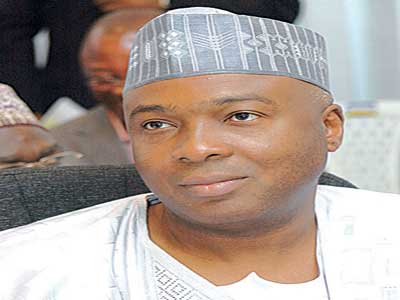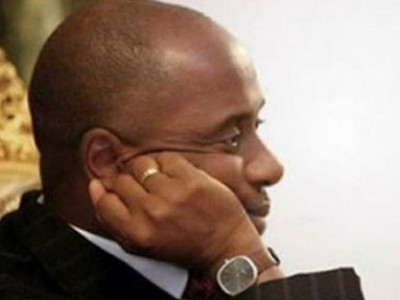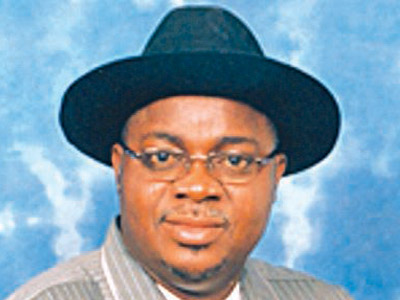 THE release of preliminary list of ministerial nominees by President Muhammadu Buhari on the eve of the last day of September 2015, put Nigerians in a tight corner on what to make of the piecemeal approach to the president’s appointments.
THE release of preliminary list of ministerial nominees by President Muhammadu Buhari on the eve of the last day of September 2015, put Nigerians in a tight corner on what to make of the piecemeal approach to the president’s appointments.
Though nobody could accuse the President of not keeping to his promise to appoint ministers in September, the narrow escape narrowed down the agitations to the demand of the constitution for equal representation of the 36 states in the federal cabinet.
The presidency gave the impression that the remaining list to accommodate the rest fifteen states of the federation would be sent to the Senate as soon as the appropriate security agencies complete background checks on the nominees. The government has shown that it is good in offering explanations through the media aides.
The import of the ministerial appointment is that the administration is slovenly in its approach. President Buhari had explained that ministers are psychedelic appendixes proficient in noise making and that he has chosen to crawl slowly, but steadily. What the president seems not to consider is the age-old saying that time waits for no man. He does not have eternity to get his bearing right.
The list may not have thrown up new faces, but to a large extent it runs in consonance to Mr. President’s public utterance in London that he would consider those who supported/voted for him before reflecting the federal character or geopolitical spread. The list of 21, which follows the earlier list of aides or loyal followers, comprise those who worked hard for or invested in the success of the All Progressives Congress (APC) and its presidential candidate at the March 28 poll.
It is not known as yet how much input APC made as a party in the compilation of the list of 21, but salient issues, including the demographics and gender balance have cropped up. For instance, a member of House of Representatives, Hon. Raphael Igbokwe, after looking at the composition of the preliminary list of ministerial nominees called on the president to turn back from the path of enthroning gerontocracy and consider the inclusion of young people. Though Igbokwe may be speaking from the standpoint of opposition, his remarks that young people should be encouraged to play active roles in governance holds water.
He contended that if “at the age of 18 years you can vote; yet at the same age, a person cannot be voted for” it makes no sense adding that citizens should not have to wait for a very long time before they can be eligible to hold public offices. That may be an angle that escaped the President, but it also suggests that he did not do a thorough job of searching for his candidates or determining the various compelling factors that should inform the composition.

Former Ekiti State Governor, Kayode Fayemi, while explaining the surprise element of his inclusion on the ministerial list, shows to what extent and levity the president holds the issue of cabinet ministers. Most commentators had wondered why the President did not as much as put some of his nominees on yellow, so that they could attune the necessary mental frame for their assignment. Perhaps the military training of the president still has a greater hold on him. But it is Nigeria that suffers. If somebody perceived to be as close to President Buhari as Fayemi, did not get a slight hint of his planned appointment, it follows that others who were tagged in a hurry may have to spend another four months before getting on the tracks.
Speaking to reporters at APC headquarters in Abuja, shortly after the lid on the list was lifted by Senate President Bukola Saraki, Fayemi said: “He did not tell anyone to the best of my knowledge and I would have thought that I was in a vantage position to know more than others. I was with him for five days before then. I was with him in New York at the United Nations General Assembly, and he never uttered a word about his list to me nor to anyone else…” Describing the President as a surprise master, Fayemi observed that being active party members that worked hard for the victory of APC, “we also owe it as a duty to deliver on the promises made to Nigerians by the party”.
Away from the functional perspective and party loyalty, the President’s first team list has little to do with geopolitical sensibilities. Though the full picture would be seen when portfolios are assigned, the fact that the zones could not produce three nominees each on the list of 21, provides a narrow crevice for complaints of marginalization to linger in the minds of many. For instance, former Secretary General of Ohanaeze Nd’Igbo, Chief Nduka Eya, said the constitution is not ambiguous on the issue of federal character. “It is meant for Nigerians to ensure that when the spirit of federal character was not represented, to challenge it.
And when government knows that we can challenge our constitutional rights; they will stop messing with us,” Eya said. While stressing that he has no worry at all with what the president had done, the former Ohanaeze scribe maintained that the agitations about federal character constitute the problem with Nigeria –ethnic representation. He said: “But let me say that the political crisis of this country has always been this structural imbalance.”
Eya’s observations indicate that the mode of selection of ministers makes it seem as if it is intended as favours to individuals and less of group interest. The former Ohanaeze scribe insists that restructuring of the country would remove the stress on parochial sentiments and make for merit and competition, which would ensure national progress. For instance, in some of the fifteen states yet to be covered in the presidential patronage, the argument of where the ministerial nominee should come, from rather than competence and suitability is said to be stalling the selection.
Next to the issue of structural balance, is the propriety or otherwise of the president adding an extra burden of a cabinet minister from the Petroleum Resources Ministry on his stooped shoulders. Could the president’s decision be a clever way to cover a vacuum or avoid the trap of appointing a minister outside the Niger Delta region? In the alternative, is Mr. Kachikwu being saddled with double responsibilities, while maintaining his designation as Group MD of NNPC? That may be why some Ijaw groups have risen to challenge the return of President Buhari as Petroleum Minister.
The groups, Ijaw Peoples Development Initiative and National Association of Izon Ebe Students, are querying the constitutional pedestal upon which the president stood to appoint himself as Petroleum. Agonizing on the likely implications and negative connotation of the presidential appropriation of Petroleum ministry portfolio, the two groups in a joint statement signed by Austin Ozobo and Ebi Wayas, said it does not augur well for the change agenda. Citing section 138 of the 1999 Nigeria Constitution, the Ijaw groups argued that “the president shall not during the tenure of his office hold any other executive or paid emolument in any capacity whatsoever” stressing that President Buhari lacks the power to assume the position of petroleum minister as serving president.
 Saraki, Senate And Super Tuesday
Saraki, Senate And Super Tuesday
SENATE President Saraki helped President Buhari to keep to his word by waiting patiently into the night to receive the list. What if at the close of plenary that fateful Tuesday September 30, Saraki had left the National Assembly? The Senate President’s patriotism gave hope that things could be put right in the fledgling APC administration. But on the contrary, if the President of Senate was nowhere to be found, the hostilities would have escalated with some blaming him for carrying out a vendetta on the presidency. However, if it is true that the Presidency and APC leadership are hinging their refusal to facilitate a political solution to the Senate President’s ordeal at the Code of Conduct Tribunal, it further demonstrates the indifference of the presidency to smooth democratic governance. It further buttresses the claims that the trial was politically motivated. But Saraki has demonstrated a keen understanding of what the change policy demands from the legislature as well as the ability to provide those legislative ingredients.
After receiving the mystery list of ministerial nominees, the President of Senate kept the suspense alive by insisting that the document could only be opened to assay its contents the next Tuesday. And from reading out the list last Tuesday, Senate adjourned plenary to next Tuesday to begin screening the nominees.
The intriguing question then is whether the Senate could also screen the Petroleum Minister in the person of President Buhari? Professor Eme Ekekwe, is one of those who express misgivings about the president’s decision to add on the post of petroleum minister to his presidency. “I don’t think it is right,” Prof. Ekekwe said. “Other presidents did, I didn’t think it was right then and I don’t think it is right now. I appreciate where I think he is coming from, there is so much rot in there and that sector of the economy is very critical to the overall picture. But for him to be the petroleum minister to me is wrong. If I were him, I won’t do it. He is not the best petroleum mind in the country”.
The senate would consider all these when it begins the screening exercise this super-Tuesday. But part of the challenge would include, the issue of petitions and public participation in the screening of the ministers. The Senate itself has hinted that it would not be business as usual any more. But in the light of last Wednesday’s evening meeting with the President, was that intended to soften the ground for some nominees that may come into the Red Chamber with baggage? Does the constitution and party politics envisage that the president alone reserves the right to hire and fire without the oversight of the legislators and contributions from the public?
Away from the functional perspective and party loyalty, the President’s first team list has little to do with geopolitical sensibilities. Though the full picture would be seen when portfolios are assigned, the fact that the zones could not produce three nominees each on the list of 21, provides a narrow crevice for complaints of marginalization to linger in the minds of many
Already, the Senate had set out a checklist for the screening so that the public could witness not only that justice was done, but seen to have been done. In absence of public petitions, the Senate checklist would help to guide the candidates on what to expect during the screening. By setting out the basic qualities expected as minimum consideration to okay a nominee, the senate has shown that it was not joking when it said screening would not be business as usual. Prof. Ekekwe explained that in addition to integrity, nominees that should scale the screening must be those that can serve the country creditably, qualified to be in the cabinet and have the technical competence to man specific ministry.
Political Peace Building, Escalation Of Hostilities
APART from putting life into the polity, President Buhari’s list of ministerial nominees has helped to build political peace between some antagonists while reactivating old animosities. Though the two presidencies both at the Villa and NASS, may not acknowledge that, the list precipitated the meeting between Buhari and leadership of National Assembly. At least, from that Wednesday conclave, Nigerians were pleasantly surprised by the convivial exchanges between President Buhari and Senate President Saraki. It was obvious from that meeting that the two leaders have nothing against each other, including the emergence of Saraki as President of Senate.
Going forward, Senate Minority Leader,

and his predecessor, Senator Ita Enang, were joined together again by the list after the hostility that broke out over the Akwa Ibom North Senatorial seat. The fruit of that infighting was the parting away of the former friends leading to the appointment of Senator Enang as Special Adviser to the President on National Assembly Matters (Senate). When the two men addressed reporters, their constituents back home would have seen the development as a win-win situation for democracy.
In Ekiti, Governor Peter Ayodele Fayose pleasantly surprised his predecessor, JKF, by rising up as Fayemi’s chief campaigner. Apparently reacting to the criteria set out to be satisfied by nominees during Senate screening and an alleged petition against Fayemi, Fayose pleaded with Senators from the State to support the nomination of JKF and to ensure the he enjoys a hitch-free screening exercise at the plenary siting. Explaining that an Ekiti man is an Ekiti man, Fayose, a well-known critic of APC said “Ekiti is my priority”.
On the flipside, politicians for whom the Buhari list revived their hostilities include President Buhari and Senator Ike Ekweremadu. Senator Ekweremadu tactfully kept away from the presidential parley at the Villa to avoid close contact with Buhari. Some villa sources had that his election as DSP was at the root of the APC angst against Saraki and as such they have not forgiven him.

Amaechi Goes To Golgotha?
Chief among those the Senate screening manual would prove a nightmare for is former Rivers State Governor, Rotimi Chibuike Amaechi. His membership on the Buhari list renewed his legendary cat and mouse relationship with his former Chief of Staff, Governor Ezenwo Nyesom Wike. The Senate rule, which demands that at least two senators from nominee’s state of origin must endorse his nomination puts Amaechi at the mercy of Wike and PDP. Additionally, when the new rule says nominees “must have a clean bill of health from its public petitions committee”, the former governor has reason to worry.

A PDP Senator from Rivers State, Senator George Sekibo (Rivers East) says the Senate Rules reduces Amaechi’s chances stressing that the petition by a group called Integrity Group, was is weighty on allegations of misappropriation of funds to the tune of N70 billion against the former governor.
In an interaction with journalists in Abuja, Sekibo disclosed that “now that the Senate has received the petition, I have laid it on the floor; it has been referred to public petition and I know the Committee will come out with appropriate recommendations”. However Amaechi has continued to carry on with less concern. The former Rivers Governor was sighted at Eko Hotels on Sunday in a social event tagged, Lord of the Ribs.
One other nominee that may sweat on the super-Tuesday is Amina Mohammed. Her prosecutors, including Senator Danuma La’ah, hinge their opposition on the fact of her state or birth, said to be Gombe. Senator La’ah contends that since Amina hails from Gombe Statem, her appointment infringes on section 147 of the 1999 Constitution, which stipulates that a ministerial nominee must be an indigene of the state presenting him/her. Married women have been having issues with the state of their husbands. It would be seen how this one would pass. The Senate Committee investigating the petitions against the nominees is expected to submit its report before the screening starts on Tuesday.
Accountability Perspective
HAVING waited good four months before reluctantly releasing the preliminary list of ministerial nominees, it is now left for President Buhari tell Nigerians how much he was able to save as ministers’ salaries and allowances. In the name of accountability, the presidency could also explain what the money was used for or if any group of persons have been undertaking ministerial assignments and what their allowances are.
It would also enhance public information if the handover notes on the ministries are published so that citizens could also evaluate what was done against what needs and what remains to be done. Just like Prof. Ekekwe said, there are a lot of challenges, which the incoming ministers would help to tackle. In sum, the Professor of social sciences stated: “For me in the order of priority, the first and most urgent is security and I am not just looking at Boko Haram, important and very deadly as that threat is.
Then corruption; corruption is deadly and it is not just at the high level, from the highest to the lowest level, it is there. But you see, in my opinion, the president cannot just spend the rest of his time fighting corruption. What he needs to do in my view is to strengthen the anti-corruption agencies and the legal system. There is very urgent need for infrastructural development. Then we need to look seriously at social services such as education and health. Not just throwing more money at the schools, but having a minister of education that begins to review the quality of what we are delivering within the system.” He explained that the National Orientation Agency (NOA) needs to be reenergized to blend Nigerians into patriotic citizens.



